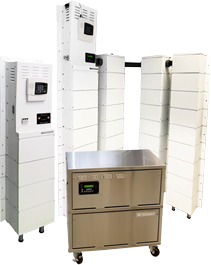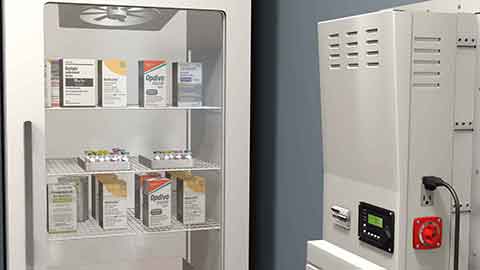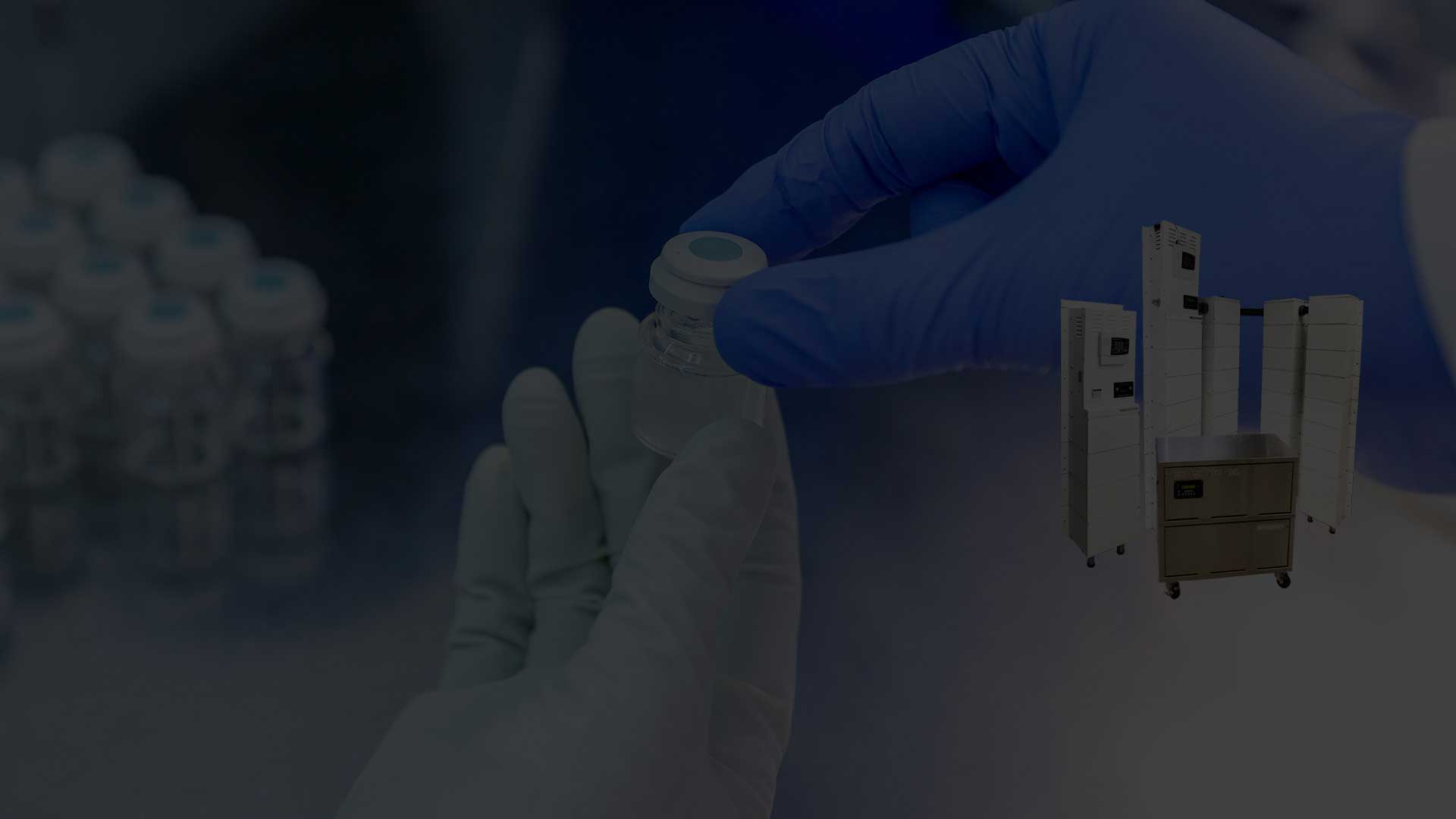Lab Freezers: Key Features for Selection
Precision is very important in the complicated world of scientific research, and lab freezers keep your valuable samples safe. In the clinical lab, it's crucial to use specialized equipment designed for storing temperature-sensitive chemicals. This ensures compliance with regulations and keeps materials safe. Maintaining the right temperature range is vital for reliable test results.
The chemicals required for lab tools come at a high cost, making it imperative to minimize the risk of financial loss due to temperature fluctuations. Storing them in dedicated equipment designed for the task is a proactive step.
Freezers capable of reaching -20°C or lower are necessary for specific storage needs, often for prolonged periods. When selecting lab freezers, consider their stability, energy efficiency (impacting total ownership costs), durability, and alignment with regulatory standards. Choosing wisely ensures the longevity and effectiveness of your lab equipment.
Researching Lab Freezers: Types and Variants
Picture a huge field of lab freezers, each with its own name and purpose. Your first step should be to learn about the different types and variations, such as standing freezers, chest freezers, ultra-low temperature freezers, and cryogenic freezers. Find the freezer that fits your goals perfectly, which will open the door to precision and accuracy.
1. Ultra-Low Temperature Freezers:
- Ideal for materials requiring temperatures below -40°C, reaching as low as -86°C.
- Notable for using substantial energy to maintain ultra-low temperatures.
- Recommended for labs and medical establishments with materials demanding extremely low temperatures.
2. Chest Freezers:
- Offers ample storage space, opening from the top.
- Equipped with alarm systems for temperature changes and digital readings.
- Ideal for labs needing to store large items in a single device; not suitable for high storage organization.
3. Under-Counter Freezers:
- Various designs available, including general-purpose and explosion-proof.
- Fits under lab benches, saving space.
- Allows customization of size, temperature range, and defrost frequency control.
4. Upright Freezers:
- Common in labs and medical institutions, opens from the front.
- Comes in various sizes, from countertops to large designs.
- Features shelving for easy organization and spatial efficiency.
- Recommended for uniform temperature exposure and quick recovery after door opening.
Temperature Control in Lab Freezers: Vital Considerations
When it comes to science, controlling temperature is more than just turning a number on a freezer. It's a whole symphony. Find out the important things you need to think about to make sure that your lab freezer keeps the right range of temperatures for your tests to go well. Precision isn't just something you want; you have to have it.
The temperature range is one of the most important things to think about when buying a business fridge. In a lab freezer, these are some usual temperature ranges.
General-purpose industrial cooler for laboratories with a temperature range of 0 C to 10 C (32 F to 5 F).
Freezer for business use -30 to 0 C (-22 to 32 F).
For -86 to -40 C (-40 to -122 F), an ultra-low temperature freezer (ULT) is used.
These freezers can get as cold as -193 F (-125 C).
Life science labs must have chest freezers that are between -40 C and -20 C so that they can safely store many types of cells and chemicals. There is also a fake setpoint and temperature show on most refrigerators and freezers on the market today.
Samples used in medical, biological, and modern laboratories need to be kept at specific temperatures. Because of this, it is best to know exactly what you need before making a choice.
Laboratory Freezer Capacity: Matching Your Storage Needs
You should know how many samples you need to keep in your lab fridge. You can take in more samples at once if the capacity is bigger, but the running costs may be higher.
Along with that, you should figure out how big of a freezer the lab can hold. With all the other things that are in lab rooms, you might not have room for the lab fridge or freezer. In this case, we suggest getting two smaller fridges. They will have enough space for storage but will be easier to fit in the room.
Getting the new fridge into the lab is another thing you should think about. You will want to make sure you have enough space to put your new three-door scientific freezer because it is not a small piece of equipment.
Specialized Features: Customizing Lab Freezers for Research
Get better at research with lab freezers that do more than the basics. Explore the world of specific features, where you can mix customization with new ideas. Check out these features that can make your lab freezer a perfect place for your studies, from smart technology to high-tech safety measures. Follow these long-term care tips to keep your freezer clean and organized:
Pick out rectangular containers:
Rectangular containers stack well in rectangular coolers, making the best use of room.
For long-term planning that works, make it a priority to maximize storage and make sure that containers can support each other.
Regular audits and checks of the inventory:
Review and audit your freezer's contents regularly to keep things in order.
Finding any lost or missing items will help keep things organized while the food is defrosting.
Keep records up to date:
Make sure you keep careful records of sample placements, changes, and adds.
Stress how important it is to put freezer things back where they belong so that they stay organized.
Train the user:
Make sure that everyone who works in the lab knows how to use the program and follow the steps for organizing the fridge.
Choose methods that are easy for everyone to use to make the change easier and get everyone involved.
Lab Freezer Brands: Top Players and Their Offerings
Here's a brief overview of market share and offerings for selected Laboratory Freezers companies:
Accucold: https://www.accucold.com
ABS: https://americanbiotechsupply.com
PHCBI: https://www.phchd.com/us/biomedical
Helmer: https://www.helmerinc.com.
Follett: https://www.follettice.com/products/healthcare
Accuvax: https://trumedsystems.com
Thermo Fisher - Revco: https://www.thermofisher.com/order/catalog/product/RFMS2305A
Lab Rep Co: https://www.labrepco.com
Migali: https://www.migali.com
Norlake: https://norlake.com
SoLow: https://www.so-low.com
Note: Market share information might not be available or publicly disclosed for all companies listed.
In a world filled with options, choosing the right brand is akin to selecting a reliable ally. Explore the top players in the lab freezer arena and unveil the unique offerings that set them apart. Your journey to scientific excellence deserves a companion that stands the test of time.
Protecting Continuity: Why Battery Backup Systems Are Vital for Lab Freezers in Healthcare Settings
It is very important for healthcare situations that lab freezers work all the time so that important medical samples stay safe and study and patient care can continue. As a result, it becomes very important to use battery backup solutions. As a reliable backup, these systems take over when the power goes out and protect private materials from damage. Using battery backups not only protects you right away, but it also saves you money in the long run by lowering the financial risks of losing samples or damaging equipment. In essence, these systems are very important for keeping medical lab freezers running smoothly, protecting the quality of samples, and keeping important medical research going.



